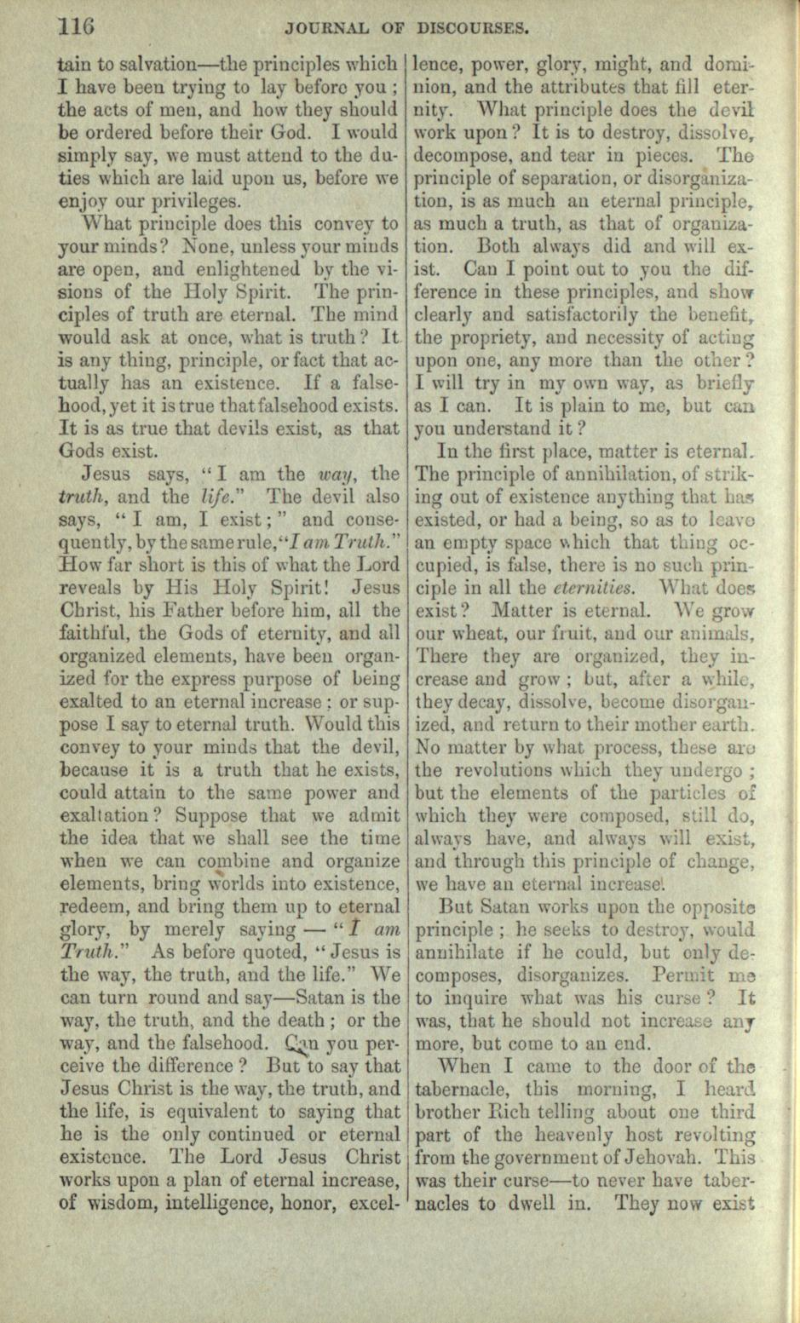Brigham Young teaches that Jesus "works upon a plan of eternal increase of wisdom, glory, and dominion."
- Type
- Speech / Court Transcript
- Hearsay
- Scribed Verbatim
- Reference
Brigham Young, "Duties and Privileges—Sacrifice—Confidence—Language—Organization and Disorganization—Taking Wives.," Journal of Discourses, 26 vols. (Liverpool: F.D. and S.W. Richards, 1854), 1:116
- Scribe/Publisher
- F. D. and S. W. Richards
- Audience
- Reading Public, Members of The Church of Jesus Christ of Latter-day Saints
- Transcription
Jesus says, "I am the way, the truth, and the life." The devil also says, "I am, I exist;" and consequently, by the same rule, "I am, Truth." How far short is this of what the Lord reveals by His Holy Spirit! Jesus Christ, his Father before him, all the faithful, the Gods of eternity, and all organized elements, have been organized for the express purpose of being exalted to an eternal increase; or suppose I say to eternal truth. Would this convey to your minds that the devil, Because it is a truth that he exists, could attain to the same power and exaltation? Suppose that we admit the idea that we shall see the time when we can combine and organize elements, bring worlds into existence, redeem, and bring them up to eternal glory, by merely saying—"I am Truth." As before quoted, "Jesus is the way, the truth, and the life." We can turn round and say—Satan is the way, the truth, and the death; or the way, and the falsehood. Can you perceive the difference? But to say that Jesus Christ is the way, the truth, and the life, is equivalent to saying that he is the only continued or eternal existence. The Lord Jesus Christ works upon a plan of eternal increase of wisdom, intelligence, honor, excellence, power, glory, might, and dominion, and the attributes that fill eternity. What principle does the devil work upon? It is to destroy, dissolve, decompose, and tear in pieces. The principle of separation, or disorganization, is as much an eternal principle, as much a truth, as that of organization. Both always did and will exist. Can I point out to you the difference in these principles, and show clearly and satisfactorily the benefit, the propriety, and necessity of acting upon one, any more than the other? I will try in my own way, as briefly as I can. It is plain to me, but can you understand it?
- Citations in Mormonr Qnas
The B. H. Roberts Foundation is not owned by, operated by, or affiliated with the Church of Jesus Christ of Latter-day Saints.

